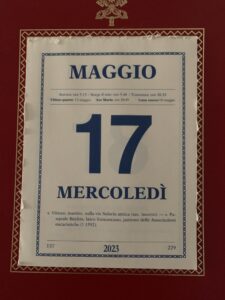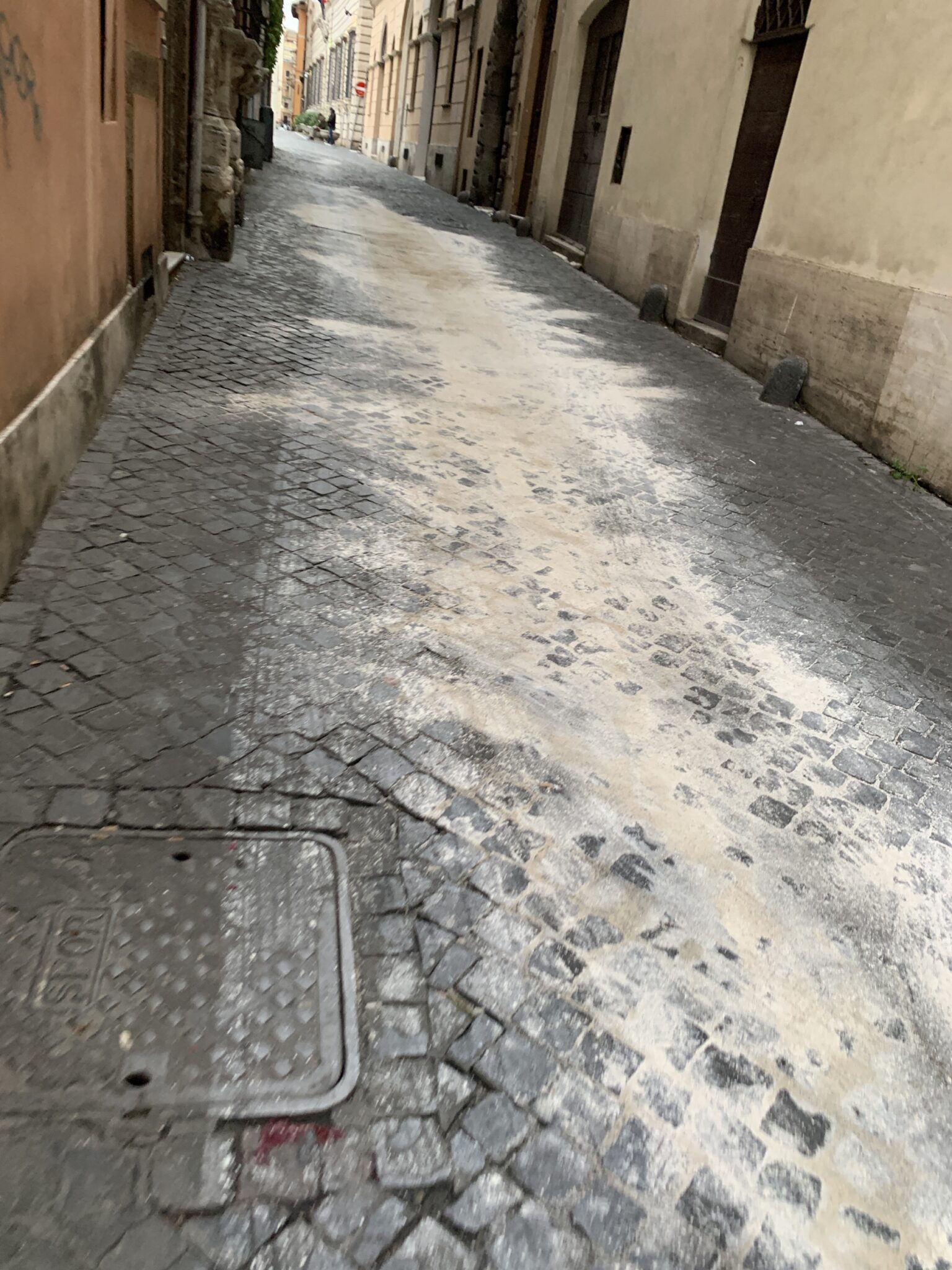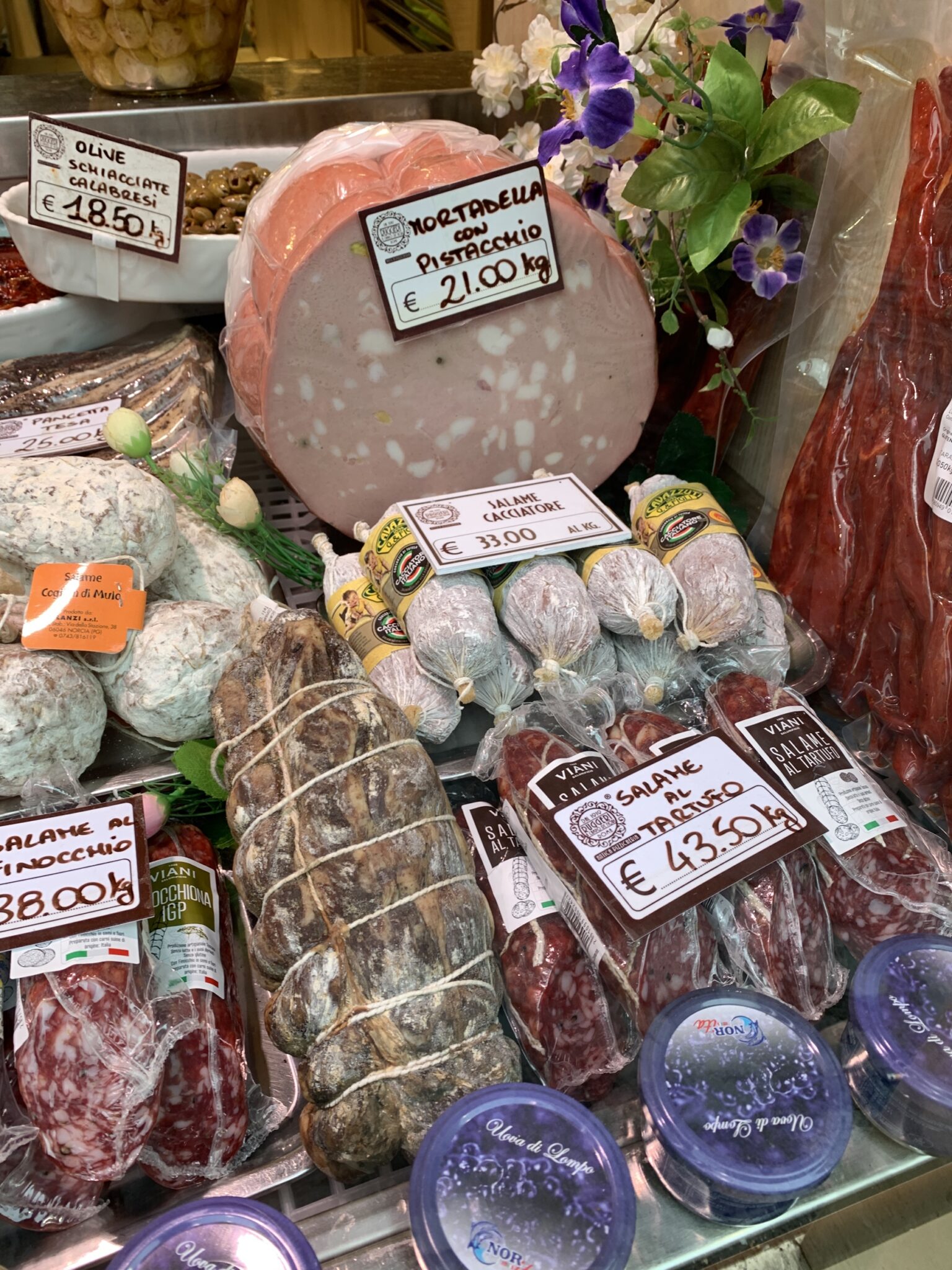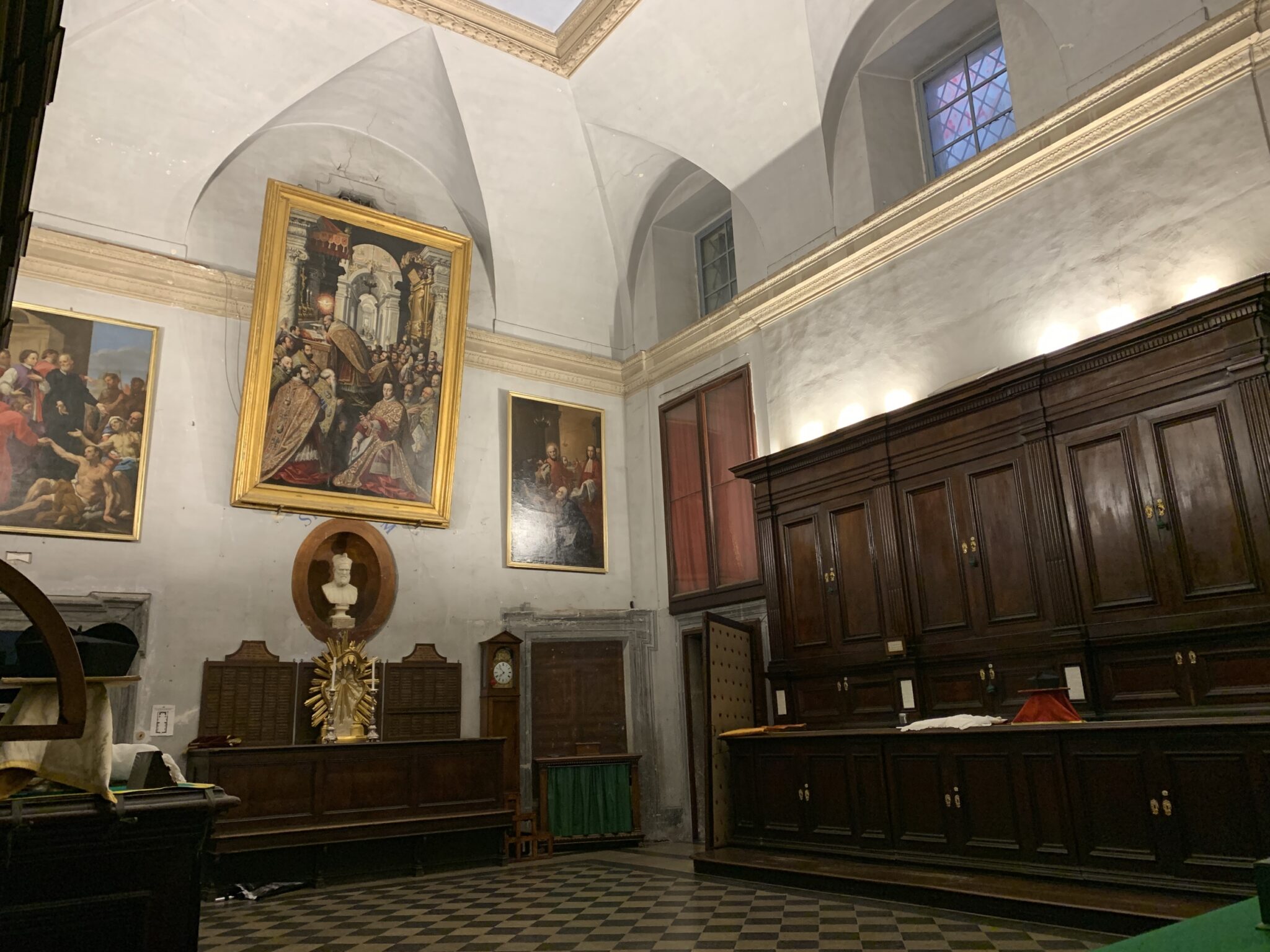 At 05:46 the sun was up. At 20:28 it’ll go down, from our perspective. The Ave Maria should sound at 20:45 still.
At 05:46 the sun was up. At 20:28 it’ll go down, from our perspective. The Ave Maria should sound at 20:45 still.
It is the 137th day of the year and the Vigil of the Ascension of the Lord.
NB: TODAY is the VIGIL.
That means that Ascension Thursday is on THURSDAY.
Since today is VIGIL of Ascension it is also the third Rogation Day. Therefore, before Holy Mass there was the usual procession and the singing of the Litany of Saints with the special Rogation prayers. The whole thing take about 20 minutes.
20 minutes well spent!
Over the last two days, I’ve underscored a few of the petitions in the Litany. First, praying for benefactors, which is one of my primary daily jobs, especially right now. It is my pleasure and duty. Second, how we have to pray for the Church, right now beset by and infested with enemies. We are in big trouble, from our perspective, friends. BUT! Christ is risen and victorious and this is HIS Church. Therefore, as Christians we are buoyantly confident, though we can feel passing sorrow for the ills around us.
Today, what struck me in the Litany was at the heart of why we have Rogation Days and make these supplicatory processions.
Here are things that can KILL us, physically and spiritually. Take special notice of that petition that God save us from a “sudden and unprovided death”, which means without access to the last sacraments, at least the change for absolution of our sins.
| V. Ab omni malo.
V. From all evil. |
R. Líbera nos, Dómine. R. Good Lord, deliver us. |
| V. Ab omni peccáto.
V. From all deadly sin. |
R. Líbera nos, Dómine. R. Good Lord, deliver us. |
| V. Ab ira tua.
V. From thine anger. |
R. Líbera nos, Dómine.
R. Good Lord, deliver us. |
| V. A subitanea et improvisa morte.
V. From sudden and unprovided death. |
R. Líbera nos, Dómine.
R. Good Lord, deliver us. |
| V. Ab insídiis diaboli.
V. From the crafts and assaults of the devil. |
R. Líbera nos, Dómine.
R. Good Lord, deliver us. |
| V. Ab ira, et ódio, et omni mala voluntáte.
V. From anger, and hatred, and all uncharitableness. |
R. Líbera nos, Dómine.
R. Good Lord, deliver us. |
| V. A spíritu fornicatiónis.
V. From the spirit of fornication. |
R. Líbera nos, Domine.
R. Good Lord, deliver us. |
| V. A fulgure et tempestáte.
V. From lightning and tempest. |
R. Líbera nos, Dómine.
R. Good Lord, deliver us. |
| V. A flagello terræmotus.
V. From the peril of earthquake. |
R. Líbera nos, Dómine.
R. Good Lord, deliver us. |
| V. A peste, fame et bello.
V. From pestilence, famine, and battle. |
R. Líbera nos, Dómine.
R. Good Lord, deliver us. |
| V. A morte perpetua.
V. From everlasting damnation. |
R. Líbera nos, Dómine.
R. Good Lord, deliver us. |
Dear readers, this is serious stuff. This is … everything, isn’t it.
Wanna hear what it sounds like? I left my phone with “voice notes” on in the sanctuary. Yes, you can hear me a little.
Wanna follow? Click
More and more clearly do I see the sticking point when I consider difference between the Novus Ordo and the Vetus Ordo. Those who tout the Novus Ordo as being the expression of that all-transforming moment of “the Council”, an iconic moment tantamount to a new Pentecost that forces us to reinterpret everything – history, theology, law – everything, take their cue from a something in between the lines of the conciliar texts, a special “tone” in which they discern the Holy Spirit’s demand for constant change. They optimistically see, with their special conciliar spirit-gifted glasses, the path to transformation in the here and now, since our eschatological future is now essentially taken care of. We are an Easter people! Christ is risen and we are all bound for Heaven (unless we resist carbon-footprint reduction). Since Heaven is assured, there is no need in our Mass orations to have those old pre-conciliar themes of sin, guilt, expiation and penance. That’s all done. We’ve matured. There is a different theology now that drives us to greater concern for the planet and the here and now thanks to our already living the great Not-Yet. Down with the old theology and ways, they say. We’ve evolved passed that Vetus thing. There can be only one theology, one liturgy, one! Well… and also indigenous liturgies. But otherwise, one!
The problem with their view is that, however optimistic we want to be about human beings, we remain human beings. We cannot deny the reality of the world, the flesh and the devil. The Novusites say that the trads are too wrapped up in that constant interior and exterior struggle that is the result of the (now no longer problematic) Original Sin.
However, the Vetus prayers are not lacking in eschatological joy and optimism as the texts of Holy Mass today shine forth. It’s there! On every page of the Missale Romanum. Even when we are praying about our sinfulness, there is confidence in forgiveness.
Let’s make this simpler. If the Novus Ordo stresses eschatological joy, the Vetus tells you, realistically, how to get it. That’s something that Novus Ordo isn’t very good at. It stresses the joy of Heaven, which is a good thing. But it doesn’t stress very well how to attain it. From that point of view, the Vetus Ordo is far more complete and helpful for us. If the Novus Ordo is a little dreamy, the Vetus Ordo is more concrete.
I do not accept the premise that the Vetus Ordo is contrary to The Whatever that Vatican II produced. It don’t have special glasses that let me read between the lines of the conciliar texts. I can’t tune to the station some of the more papalotrous and innovation enthusiasts can hear. One thing I do know is that anyone who has not said the Vetus Ordo day in and day out for years should keep their pie-hole shut and not even attempt to have a tiny thought about it, much less make claims about it. For my part, I sense in the prayers of the Vetus Ordo both the optimistic joy of the Christian praying with Christ’s own voice in the Mass even as I hear the earnest cry of the sinner who is absolutely dependent on God’s mercy even to keep breathing. They are not in conflict. It is wrong to create a conflict where there isn’t one.
But I digress. Go back and look at those petitions and then think about what you hear in the news and then tell me, Novusites, that we don’t need to have processions and sing these Litanies.
Speaking of Original Sin, now things sometimes go wrong and need correction. Today, as I learned from a Carabiniere, one of the early morning garbage trucks had an oil leak. Thus the stuff sprinkled in the streets all around the area. This is the Lutheran approach to oil-spills even in Rome.

Yesterday, I showed close ups of the sweets. Here are some savories. Yesterday, mortadella (sounds kind of “deathy”, in keeping with my Litany rant, above), with truffle, which is a proof of God’s love and Heaven to follow. Here is mortadella with pistachio. Definitely not your public school lunch sandwich “bologna”.

After Mass I had a little sit in the sacristy and just drank it in. I’ll have to leave in a couple of weeks. I have to absorb it as best I can now. I was sad and happy at the same time.

 Please remember me when shopping online. Thanks in advance. US HERE – UK HERE These links take you to a generic “catholic” search in Amazon, but, once in and browsing or searching, Amazon remembers that you used my link and I get the credit.
Please remember me when shopping online. Thanks in advance. US HERE – UK HERE These links take you to a generic “catholic” search in Amazon, but, once in and browsing or searching, Amazon remembers that you used my link and I get the credit.
Thank you, donors, for my flowers. The frondy things are like a mimosa but not yellow. I don’t remember the Italian name for them and I never knew the English. The others are, of course, little carnations. Not my favorite, but cheerful enough. The freesia is pretty much played out, I am told. Too bad. It was beautiful, fragrant and inexpensive compared to many.

Here’s a puzzle.

NB: I’ll hold comments with solutions ’till the next day so there won’t be “spoilers” for others.
Priestly chess players, drop me a line. HERE
Yesterday I posted about a girl whose life changed for the better with the gift of a humble, inexpensive chess set. How about talking to your parish priest about starting a chess club?

































Thank You Father Z. for your reflections. I know that they come from your education, continued study, the many Latin Mass’s Prayed. Sorry to say but I don’t find this in the Priest of the Novus Ordo. Peace and Joy but no SPIRITUALITY. [Now now. Don’t be so hard on them. Firstly, I know a lot of priests who have never said the TLM who are wonderful priests with great prayer lives. They are diligent and pious and nobody’s fool. It is sad that they don’t also have the advantages that the Vetus Ordo would impart. But don’t make assumptions about “Novus Ordo” priests like that.]
On the oil leak, there was a time when our roads all had a dark stain down the center. When I learned to drive the instuctor said, Just keep the vehicle on that stain. Realized later that when we changed our oil, put the old oil in a pump spayer and sprayed the oil on the bottoms of our vehicles to prevent rust. I hear leftist heads exploding. [K’BLAM is right!]
“…special conciliar spirit-gifted glasses…”
Didn’t Joseph Smith have a similar pair of spectacles for reading gold plates or something?
Dear Fr. Z,
I would venture to assert that mortadella is the sausage that God loves most!
Have a blessed Vigil of the Ascension!
Man Father you nailed it. The local NO mass emphasizes ‘love’ as the joy of life, reason to behave, reason to tithe, reason to stay for donuts and coffee after mass. Never a good explanation on why, how; just do-feel-be it. When I am able to attend the TLM (now only when I travel) there is great joy accompanied by true regret for sins whilst praying earnestly for protection and help. I spend that time with gratitude and asking for forgiveness for myself and others and remembering my people who have died. The time flies. At the wretched NO I spend time counting the number of attendees to see if there are more or less than last week. I also say my Rosary. I almost never receive communion and I am almost always crying inside at that point. I am such an ordinary faithful Catholic and attending the NO becomes more painful each week.
Once again Father Z. I stand corrected. We have two wonderful Priest who are Diocesan and do Both the Latin and Novus Ordo and I have quoted them on their wonderful insights on your Good Messages on Sunday. I will have to bring this up during confession.
I think many Novusites would easily explain away each of the petitions in the litany:
From all evil, from all deadly sin, from the crafts and assaults of the devil – God is love, there is no real evil and everything Man does is good (there is no sin – except intolerance and fossil fuels);
From sudden and unprovided death, from everlasting damnation – we have a(n) (un)reasonable hope that all men are saved, there is no Hell (silly Father Z!) we’re all going to Heaven no matter what we do here on Earth;
From the spirit of fornication – that is just an expression of God’s love, so enjoy it whenever, wherever, and with whomever you can (love is love is fornication);
From lightning and tempest, from pestilence, famine, and battle – simply go green (to those free and happy days before the industrial revolution) and replace freedom and free enterprise with socialism;
From the peril of earthquake – there will be no more earthquakes once we stop drilling for oil and gas;
From anger, and hatred, and all uncharitableness – traditional Catholics are the most uncharitable people of all, tolerance and acceptance of all and everything (remember, there is no sin) will solve this.
Rogation days? Silly superstition and nonsense! All of those “evils” can be overcome by Man alone. (I refuse to go there, but The Fishwrap probably has articles supporting every one of these statements.)
At an unfamiliar Novus Ordo, there is always the nagging question of whether reception of Jesus in my non-consecrated hand, or from a non-consecrated hand, will be universally enforced, so I sit far enough in the back of the nave to be able to observe when the time comes, and then act accordingly. It can be agonizing. Not sure if that same uncertainty (or, worse, certain enforcement at her parish) is the reason for the awful suffering Kathy describes at Communion time. I say this as a former high school Mass EMHC who did not fully understand at the time, or for many years after, the gravity of the practice I was perpetuating (though the related hospital ministry was edifying and hopefully mitigating), and will have to answer for it at my particular judgment.
As for the chess, we make sacrifices to smother the enemy:
1. f4! Nxf4 (forced)
2. Re4 Bxe4 (forced)
3. d4#
I’m not much of a chess player. This one seems straightforward & simple to me, which makes me wonder if I’m missing something, but I’ll offer: f2 to g3.
1. f4+ Nxf4
2. Re4+ Bxe4
3. d4#
Palestrina is right. Those two checks force your opponent to capture. By capturing your opponent cuts off escape squares for his own king. The a simple pawn delivers the bad news.
I have attempted before to read the Vatican II documents, and no less, in their pristine latinate condition. I made it slightly over halfway through “Sacrosanctum Concilium” and I was bored almost into a coma. “Lectio sine ulla delectatione.”
Interestingly, I feel the same way about the Novus Ordo. Even the well done ones I saw in Chicago: “Liturgia sine ulla delectatione.” There are enough trials to bear in life, they need not be augmented by bored and boring “experts.”
Ha! I was right! I DID miss something! Something glaringly obvious, in fact – like my misidentifying a piece on the board!
Whatever may have been in the drinking water at VII that the bishops (and periti) imbibed from which they received this special insight that is so raved about: John Paul II and Benedict XVI were there, and Francis was not.
So, when it comes to “interpreting” VII and putting it into effect, we would have to look to JPII and Benedict first, and Francis only derivatively, second hand. When it comes to understanding “the Council”, (in reality, not a singularity but the 21st ecumenical council of the Church, simply the most recent in a long line of councils by which the Church developed the true teaching, to be extended yet again at some future council), we can be confident that JPII had more insight on what “the Council” really meant than someone who was busy studying for the priesthood at the time. If he was properly busy studying what he needed to study for the priesthood, Bergoglio would have barely had time to even be aware of the mere fact that there was a Council, much less become informed in the details of the Sessions and committees and understand the nuances of the votes, the word choices, the amendments, the interventions, etc.
In reality, the output of a Council must be understood in light of all the prior councils and their output, i.e. must be understood as in continuity with what had been taught before. As a result, the hermeneutic of rupture is certainly the method of heretics and opponents of the Church, not “one option among several” in theoretical approaches to interpretation. The modernism that had taken hold of the universities in the late 1800’s to 1910’s, infiltrated into the seminaries in the 1st half of the 20th century, and became the (heterodox) model of (mis)understanding the text of the Council by reading between the lines (i.e., by “informing” the text by putting in additions that weren’t there, that the modernists wanted to be there), and revising all of Christendom to project the modernist trope on everything. When you try to pin things down by pointing to the actual text of Sacrosanctum Concilium, they wander off into all sorts of OTHER texts that aren’t there, or they drown you by emoting all over you until you can’t breathe. And you can never get a straight answer to any question, no matter how simple.